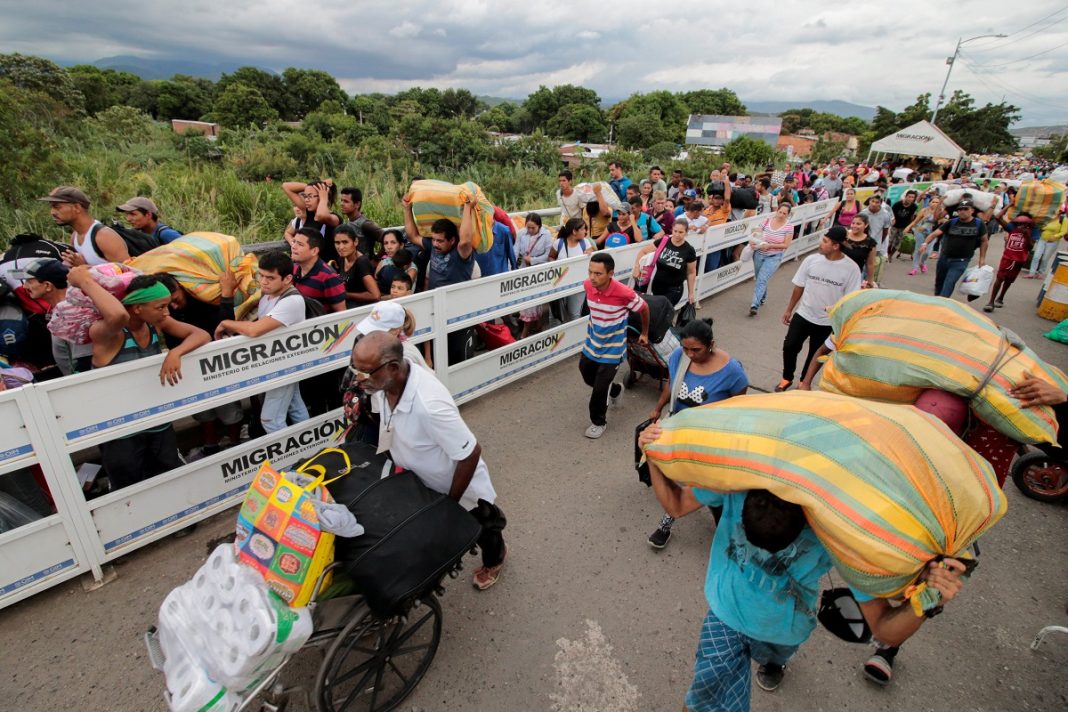In April 2022, the independent think tank Equilibrium CenDE carried out a national survey on the subject of Human Rights in Venezuela. The study sought to inquire about the social perception of Venezuelans regarding the state of Human Rights in the country, as well as their opinion and position regarding existing international procedures and sanctions against the Venezuelan State and their effects on the national reality
The last two decades in Venezuela have been marked by critical processes of political conflict, polarization, economic crisis, and protests. Amid this panorama, numerous situations have arisen in which the Human Rights of the population have been violated, either due to the excessive use of force by the authorities or due to the lack of guarantees to the enjoyment of the economic, social, cultural and environmental rights of the population.
This situation has generated an outcry and rejection from numerous countries and multilateral organizations that have repeatedly denounced it in different international arenas (IACHR, 2021; UN, 2020). In 2014, several countries led by the United States began to take more direct diplomatic and economic actions, beginning with individual sanctions against government officials deemed responsible for Human Rights violations. As a consequence of the repression of mass demonstrations in 2017, sectoral sanctions were issued against companies and government institutions, extending to the entire Venezuelan State in 2019 (El Fakih, 2020).
However, the questioning and denunciation of the violation of Human Rights by the Venezuelan State have not only ended in sanctions; In 2018, the International Criminal Court (ICC) open a preliminary examination to verify the necessity and feasibility of conducting an investigation into the excessive use of force by security forces in the context of national protests that took place in 2014 and 2017 (González, 2019). In 2022, the preliminary examination led to the opening of a formal investigation and the opening of an ICC office in Venezuela to advance the process, considering that there were sufficient grounds to believe that crimes against humanity have been committed in the country.
.The condemnation of the human rights situation in the country, the application of sanctions and the opening of an ICC investigation have generated mixed reactions and opinions in Venezuela. The national government denies being involved in the commission of crimes against humanity and affirms that the specific violations of Human Rights that have occurred in the country have been duly prosecuted and punished by the Venezuelan justice system. Regarding international sanctions, the government considers them “unilateral coercive measures” by a group of countries that seek to destabilize and overthrow the Venezuelan government.
On the contrary, the Venezuelan opposition considers that there is no respect or guarantee for human rights in the country, which calls for the collaboration and intervention of countries and international organizations through mechanisms such as sanction regimes or the ICC investigation, with the objective of bringing to justice those responsible for human rights violations and promote political change (HRW, 11/3/2021).
In general terms, the results of the survey show broad support from Venezuelans for the involvement of international institutions to guarantee respect for human rights on the part of the Venezuelan State, either as observers of the guarantees or in more active roles such as leading investigations and sanctions.
Support decreases according to the level of intervention of international organizations; For example, the option that received the most support was that the Venezuelan State abides by decisions related to respect for human rights from international organizations (79%).
However, as international organizations become more involved, for example, by carrying out reviews of human rights conditions within the country or formally investigating the violations that have occurred, support drops to 70% for both cases. When the intervention becomes even more direct in the form of sanctions, support falls to 51%.
Even though support for sanctions is not very high, their rejection is not generalized either, as only 23% of respondents directly opposed them. In fact, opposition to international sanctions does not mean rejection of other international mechanisms, since 47% of this group support the international review of the situation of human rights in the country, 58% support compliance by the State with the decisions of international human rights organizations, while 46% approve of an ICC investigation on Venezuela.
The decrease in this support is mainly motivated by the perception that international sanctions have served no purpose (43%) or have even worsened the country’s political and economic situation (32%). This is true even for citizens who support the implementation of sanctions, a segment in which 47% consider that the measures have been useless and 19% believe that they have worsened the situation in the country.
Regarding the general opinion disaggregated by political leanings, the survey conducted by Equilibrium CenDE found government supporters as the social group with the greatest opposition to any type of intervention or participation of international organizations in Human Rights related issues in Venezuela. On the contrary, both the independents and those identified with the political oppositions have majority support for the supervision and action of international organizations to ensure the guarantee of Human Rights in the country. Support for such initiatives was particularly high among the respondents that identified with the opposition.
Download the full report in Spanish HERE.
Translated by José Rafael Medina




